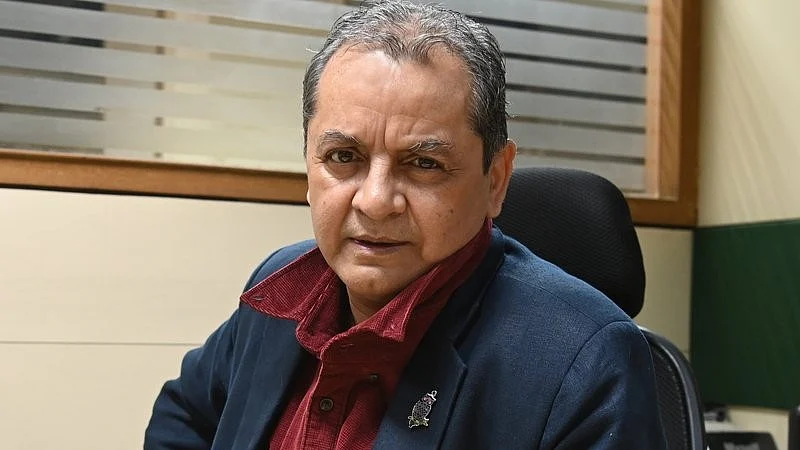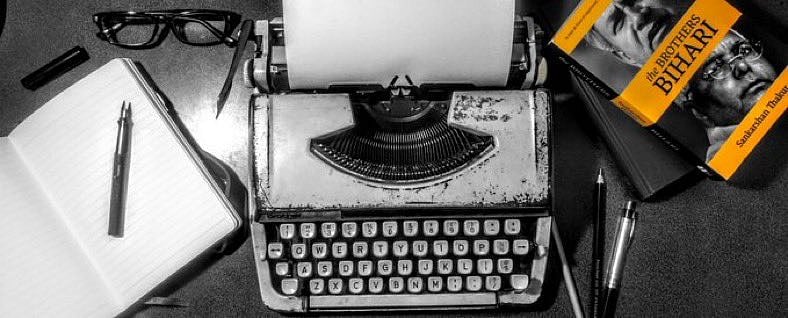A lighthouse of an editor who sweated it out in the field: Sankarshan Thakur (1962–2025)
“His reporting from Gujarat and description of PM Modi's entry into national politics fall in the category of prophecy and warning”

Sankarshan Thakur, editor of The Telegraph, passed away on Monday, 8 September 2025, at a Gurgaon hospital — a light put out way too early at 63 — after a recent surgery.
He was a journalist, a peer writes in tribute, who “kept faith with the people, the country, and the Constitution”.
Renowned for his sharp political insight and fearless reporting, Thakur’s coverage of Bihar and Kashmir left an indelible mark on contemporary journalism. Among his many seminal works, his reportage on the 1999 Kargil War stands out for his commitment to truth.
The Editors Guild of India called him “formidable” and “legendary” in its tribute. The Press Club of India mourned the loss of “a fearless voice in journalism”, his sharp political analysis and “unwavering commitment to the truth”.
From colleagues, from even political parties and personages that might have had cause to fear his acerbic pen, his typewriter bent on hammering out the truth to be spoken to power in witty, but hard words, the ‘fearless’ echoes — and with good reason, as some candidly say, in a time when journalism in India has been struggling — there have been tributes to his uncompromising courage. For under his aegis, the Telegraph kept the torch of truth visibly burning amid the smoke-and-mirrors of our media circuses.

Professional peer Ravish Kumar called it sad day, and recalled running into Thakur, typically seen as Bihar’s Nirad Chaudhuri, with his high-collared jacket up and closed even in the tropical heat, covering the Bihar elections with a gamchha instead as he travelled from village to village!
He would do the same for Kashmir later, Kumar remembers, noting: “His reporting from Gujarat and the description of Prime Minister Modi's entry into national politics fall in the category of prophecy and warning.”
This ground reporting would remain Thakur’s hallmark all the way into the Editor’s chair. Fellow chronicler of the rise of right-wing Hindutva politics in India, Saba Naqvi notes that “he wrote beautifully but was such a superb ground reporter” that even as recently as 2024 he was out in the excruciating heat of Varanasi at the end of the Lok Sabha election campaign — despite almost passing out from the heat in his room.
“He worked harder than reporters half his age,” agreed a journalist who once dogged his footsteps — and his bylines — as a cub reporter.
Oft-cited as a chronicler of Bihar’s political landscape, Sankarshan Thakur’s celebrated works include Making of Laloo Yadav, The Unmaking of Bihar, Single Man: The Life And Times of Nitish Kumar, and The Brothers Bihari. But his oeuvre stretched much further afield, from Pakistan and Kashmir to Sri Lanka.
In a career spanning the Bhopal gas tragedy, the 1984 anti-Sikh riots and the troubled time around Indira Gandhi’s assassination, the multiple crises of Kashmir and the Sri Lankan civil war, Thakur ended up defining what political journalism should be — and became an inspiration to many a young scribe that few could actually live up to.
Educated at St Xavier’s High School, Patna, a political science graduate from Hindu College, Delhi University, Thakur brought academic rigour to his journalistic endeavours as well.
His journey as a journalist began with the Sunday magazine of the Ananda Bazar Patrika group, his voice developing through immersive on-ground reporting from Bihar and Kashmir. But before ascending to the editor’s chair at The Telegraph, he would serve as its national affairs editor and lend his incisive pen to The Indian Express and Tehelka awhile.
On behalf of Kashmir, chief minister Omar Abdullah — recalling his trips around the then-undivided state at the northernmost tip of India — said Thakur, who was both objective and well-informed, was a rare journalist who travelled extensively among the people and “while travelling he actually listened, he didn’t judge”.
Congress president Mallikarjun Kharge called him “brilliant”, lauding his “incisive reporting, fearless political commentary and eloquent writing style” that left an enduring legacy.
In that legacy must be included Thakur’s reportage of the political violence in Manipur from June 2001 — amid the delicate ceasefire negotiations with the NSCN-IM, long before the current crisis.
Congress communication chief Jairam Ramesh took to X to remember “a delightfully brilliant writer... a very incisive analyst of Indian politics” who belonged “to a breed already endangered” — for, Ramesh writes, “liberal, democratic, secular, and pluralistic India has lost one of its strongest defenders” in his passing.
Author Nilanjana Roy spoke of him as “a lighthouse of an editor” who held on to courage and conscience “when so many sold theirs”. A gifted writer, “the sharpest of political analysts” was Thakur, she wrote, but more importantly, a journalist who “kept faith with the people, the country, and the Constitution”.
She shared in her X post a collage of front pages from the Telegraph’s most iconic editions — including the ‘India Cuts Modi Down’ that heralded the PM’s third term when many a masthead was awash in saffron, and another of ‘The God We Failed’ in reverse-lettered black strap alongside a copy of the Constitution of India.
Suhasini Haider of the Hindu posted in tribute to “an intrepid journalist, a brilliant writer, with just the right mix of hope and cynicism, and the wisdom of the owl on the pin he wore always”.
RJD MP Manoj Kumar Jha posted that, agree or disagree with his views, Sankarshan Thakur “walked the thin line between reportage and resistance with rare integrity.... reminding people that journalism is not about proximity to authority but about fidelity to people’s struggles and aspirations”, and spoke of the rare confluence of “intellectual depth and moral clarity”.
We can only hope Jha is right in holding out hope that a future generation of journalists will continue to uphold Thakur’s legacy: “Beyond accolades and awards, a commitment to truth even when it was inconvenient, unfashionable, or dangerous... old, demanding ethic of listening, questioning, and writing with care.”
Follow us on: Facebook, Twitter, Google News, Instagram
Join our official telegram channel (@nationalherald) and stay updated with the latest headlines
